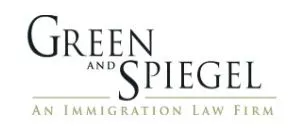As of September 29, 2016, new entry requirements will be in effect for many travellers to Canada. Visa-exempt foreign nationals, who fly to or transit through Canada, will be required to have an Electronic Travel Authorization ("eTA").
Notably, there are three main exceptions to this requirement:
- U.S. citizens do not require an eTA;
- travellers with a valid Canadian visa do not require eTA; and
- those entering via a travel method other than air (i.e. land and sea) do not require an eTA.
Note: having a U.S. ESTA does is not an exemption from obtaining a Canadian eTA.
eTA applications are made online and cost only $7 CAD. Most eTA applications are approved within minutes of applying. However, there may be delays if there is a ground of potential inadmissibility or investigation. These grounds can include, but are not limited to, any (even minor) prior criminality, a medical condition, and past immigration refusals in Canada or elsewhere in the world.
In many instances, these issues have remained latent for visa-exempt foreign nationals who have previously travelled to Canada without incident. It may come as an understandable source of surprise and confusion to face denial of entry for issues that have never before been of concern.
In such circumstances, the individual may be asked for more information and/or directed to their nearest visa office. When responding to such inquiries, it is best to seek the advice of qualified legal counsel prior to addressing the concerns.
Failure to answer a question truthfully during the eTA process may lead to a finding of "misrepresentation", which can in turn result in a 5 year bar from Canada. Even seemingly benign inaccuracies can have significant consequences.
Once ultimately approved, an eTA is valid for five years or until the individual's passport expires, whichever comes first. If a new passport is obtained, a new eTA application is also required. This is because an eTA is electronically linked to an individual's passport. An eTA number will be issued but no physical document will be provided. Airlines will be able to verify the validity of an eTA by scanning an individual's passport prior to allowing boarding of an aircraft destined for Canada.
The eTA process will also have a significant effect on Canadian dual-citizens and permanent residents:
1. Dual Citizens
Dual-citizens of Canada and a visa-exempt country can no longer use their non-Canadian (e.g. U.K) passport to fly to Canada. Such citizens are also not permitted to apply for an eTA online. This is because the eTA process was established to screen foreigners for admissibility to enter Canada on a temporary basis. Citizens have a right to enter Canada without such screening.
As such, at the end of the transition period, dual-citizens will need to show proof of Canadian citizenship before being allowed to board a flight home to Canada. Acceptable documents are:
- a valid Canadian passport;
- a Canadian temporary passport; or
- Canadian emergency travel document.
2. Permanent Residents
Likewise, the same applies to Permanent Residents (PRs). A valid Canadian PR card will be required prior to entering Canada via air. Canadian PRs will no longer be able to travel to Canada with only a visa-exempt passport. As with citizens, Permanent Residents cannot apply for an eTA.
Those who do not have PR cards, or whose PR cards are expired, must wait the application period for a new PR card. Currently, this can take several months. This is especially so if there are complications with respect to the calculation of the residency obligations [note that all PRs are expected to prove residence in Canada for a total of 730 days in the 5 year period preceding the date of their application for a new PR card or other examination].
In urgent situations, PRs can potentially apply for a permanent resident travel document (PRTD) to the visa application centre (VAC), which serves the country and area they are visiting from outside Canada. A PRTD is valid for only one (1) re-entry into Canada and is issued in exceptional cases.
For further discussion on eTA's please contact Green and Spiegel.
The content of this article is intended to provide a general guide to the subject matter. Specialist advice should be sought about your specific circumstances.

